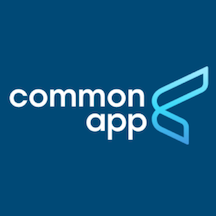 A new study from officials at the Common App looks at the reporting of standardized test scores by students using their services to apply to colleges and universities.
A new study from officials at the Common App looks at the reporting of standardized test scores by students using their services to apply to colleges and universities.
The Common Application (Common App) is a nonprofit membership organization representing nearly 900 diverse institutions of higher education. Participating member institutions include public and private colleges and universities across all 50 U.S. states, and 20 countries. Each year, more than one million students apply to college, research financial aid and scholarships, and connect to college counseling resources through Common App.
The new study found that many colleges took steps to reduce barriers to applying during the pandemic, most notably in the relaxation of test–score reporting requirements. Because most students were learning remotely and opportunities for sitting for a college entrance examination were limited, 89 percent of Common App member institutions did not require test scores from their applicants during the most recent admissions cycle. Prior to the pandemic, only one third of member institutions did not require the reporting of standardized test scores.
The new study looked at the students who did report their test scores even though in most cases they were not required to do so. Overall, 43 percent of applicants reported a test score in an application this season. The rate fell from 77 percent in 2019–20, before the pandemic. The data found far higher average reporting rates among applicants living in more affluent communities, as defined by median incomes in applicants’ zip codes. Previous studies have shown that test scores rise for applicants who come from families with higher incomes. This is due to many factors including the quality of public schools, the ability to afford test preparation courses, and more educational resources in homes to further students’ education. Since African American households have median incomes that only 60 percent of those of non-Hispanic White households, this places Black test-takers at an extreme disadvantage.
Thus, it comes a no surprise that students from more affluent communities were more likely to report tests scores for the simple reason that in many cases their scores were higher and they thought that showing admission officials that they performed well would enhance their prospects for gaining entrance to their preferred educational institution.
The reports also found that first-generation and underrepresented minority applicants (URM) were less likely to report test scores than non-first-generation and non-URM applicants. Their rates of reporting also declined at sharper rates relative to 2019–20. Only 31 percent of students from underrepresented minority groups reported test scores this past year, compared to 43 percent of all students who used the Common App. Since the average scores of Black students on the SAT and ACT tests have historically been far below those of White test-takers, again it comes as no surprise that optional reporting of test scores was lower for Blacks and students from other underrepresented groups.
The authors of the report conclude that “as colleges and universities consider whether or not they will require test scores in the coming years, they should contemplate the degree to which they perceive the information garnered from test scores as valuable and whether test score requirements are imposing barriers, perhaps disproportionate barriers, upon students who would otherwise seek entry to their academic communities.”











